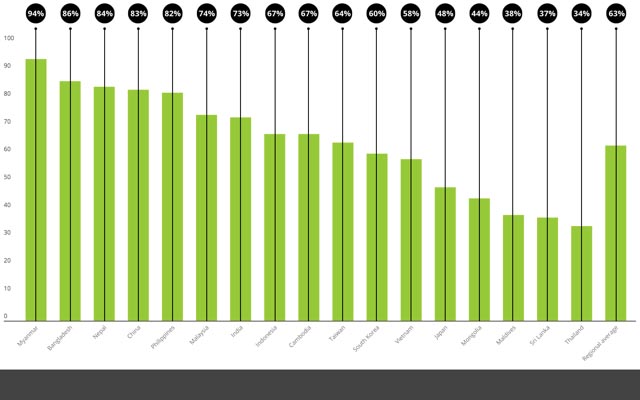Yangon – Among 17 Asia-Pacific countries, the Anti-Corruption Commission of Myanmar has gained the highest trust of its citizens, according to a report by Transparency International, a global coalition against corruption.
The report said on Tuesday that Myanmar’s citizens expressed the highest trust in their anti-corruption body in all the countries.
Despite concerns about a lack of oversight of Myanmar’s military, the commission has demonstrated a strong will to curb corruption by investigating cases involving high-level figures, the report said.
However, the body – formed with 15 members in February 2014 – has no mandate to tackle military corruption as the military-drafted 2008 Constitution gives the armed forces immunity from external prosecution.
The Constitution grants the military the right to tackle corruption within its ranks using internal mechanisms.
In 2019, the commission managed to investigate Tanintharyi Region’s chief minister Lei Lei Maw of the National League for Democracy (NLD).
In May, Lei Lei Maw was sentenced to 30 years in prison for bribery. She became the first chief minister and the most senior figure to be charged under the Anti-Corruption Law since the NLD came to office in 2016.
Following her bribery cases, two company directors and a manager were also sentenced to up to 10 years in prison for abetting and conspiring to commit corruption.

In 2018, the commission took action against Yangon Region Attorney General Han Htoo, Judge Aung Kyi from Yangon Eastern District Court, Yangon prosecutor Thein Zaw, Yangon Eastern District prosecutors Ko Ko Lay and Thit Thit Khin and Police Lieutenant Chit Ko Ko for accepting more than 70 million kyats in bribes to drop charges against three suspects in the murder of comedian Aung Yell Htwe.
Than Htut, the director-general of the Ministry of Health and Sports’ Food and Drug Administration (FDA), was charged under the Anti-Corruption Law for bribery in 2019.
The commission also allegedly opened a lawsuit against the then finance minister, U Kyaw Win, in May 2017. But it dropped the case in June, saying the complaints were unsubstantiated. U Kyaw Win later resigned.
The anti-graft body was accused of failing to investigate the loss of billions of kyats worth of public funds revealed in the Yangon Region auditor general’s report on the regional government’s 2016-17 budget.
U Aung Myo Min, executive director of Equality Myanmar, told The Irrawaddy on Wednesday that the commission has been doing more to curb corruption as it has been given the mandate not only in investigations but also the power to take action against the violators.
He added that the commission manages to investigate many corruption cases committed by low- and middle-ranking government officials across the country.
But U Aung Myo Min said the commission is unable to take effective action against senior figures in government and other institutions.
The commission’s chairman, U Aung Kyi, vowed to fight deep-rooted corruption in December 2018.
You may also like these stories:
Myanmar’s Second Investment Policy Review Urges Further Liberalization
Rights Groups Demand Release of Myanmar Students After Rakhine Protests
Japan Reveals Full Commitment to Myanmar’s Dawei SEZ

















